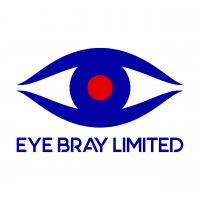What are really our MUST DO’s? We are all told of the things must do in order to be successful. Marketing, SEO and social media are all “up there” as hot topics, but is that all?
As an owner/director of your own company you have legal requirements, and it isn’t just relying on accountant to make your submissions to Companies House on time. Failing to meet these requirements can put you out of business. How? Certain activities cannot be either abdicated from, or delegated. You are accountable for them.
Here’s a list of more Must Do’s for you to contemplate if you are a company:
This is quite a list for a director to comply with. Add to this the policies and procedures required by the company and the list of things to gain compliance with gets longer.
A company becomes compliant when the legal framework pertaining to their Articles (particularly relating to their SIC) is fully adhered to, reviewed and maintained.
When it comes to things like tax, our lovely accountancy friends can provide guidance, frameworks and calculations. They help us to make sure we are fully informed of what to pay and when to pay it and enable us to get things done. Some matters, like finance, are general, while others are sector specific.

Being compliant also means that we can become more trusted. How? Well we can attain certifications and accreditations that are recommended by our industry, or required by our target clients.
The compliance required for construction company and a restaurant business would be completely different. Business owners are not necessarily experts, so they do not know how to respond to all of these requirements.
The trick is to find the appropriate specialist for the area of compliance your company is interested in.
Firstly, it’s important to remember that GDPR approved within the EU on 16 May 2016 continues to be in force. So, any EU nationals living in the UK remains to be protected by GDPR and is unaffected by the UK’s exit from the EU.
The Data Protection Act 2018 (commonly being referred to as the UK GDPR) has been accepted as an equivalent standard of data protection, for the time being, to the EU approved GDPR. Practically what this means is if your business has contact with individuals who are EU nationals, whether they live inside or outside the EU, you can continue to process their personal information in the with the UK GDPR.
Data Protection regulations stipulate that it is the responsibility of the data controller to check that any contract with any third-party is in line with regulations. Furthermore, that responsibility extends to the point where they know enough about their third-party supplier to know the status of their compliance to Data Protection regulations.
To know what the Data Controller has to do, look here: Poor Data Controller – Eye Bray Limited .
Our experience in the compliance field helps business owners understand all their obligations (not just those about Data Protection) and to help them make the right decisions for their organisation. As business owners, you are accountable for the compliance of your organisation.
What is in here that you do not know about? Contact us now to find out more about how we can help. You can book your discovery call by using my calendar link: https://meetings.hubspot.com/eyebrayltd
Otherwise, email using: enquiries@eyebray.com or call me on 020 3026 5600, or 07943 211611

Registered Address:
55 Crown St, Brentwood. CM14 4BD
Tel: 020 3026 5600
Mob: 07943 211611
Monday:
Tuesday:
Wednesday:
Thursday:
Friday:
Saturday:
Sunday:
8 am – 6 pm.
8 am – 6 pm.
8 am – 6 pm.
8 am – 6 pm.
8 am – 6 pm.
Closed
Closed